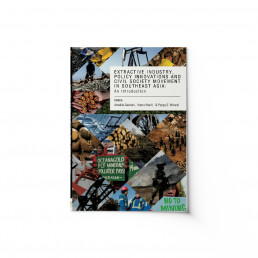Good governance in extractive industries (EI) and natural resources has played an important role in development, particularly for economic and social welfare. A lack of good governance can potentially lead to asymmetric information, high economic costs, and corruption. It also has critical impact on environmental damage, social conflict, and can even potentially fuel human right violations. This is particularly true in the case of EI, which mostly deals with un-renewable resources that are rarely managed through good and appropriate governance.
Greg Bankoff and Peter Boomgaard (2007), in their chapter “Introduction: Natural Resources and The Shape of Asian History”, write that forest products, minerals, and fish were in principle “free gifts of nature” in the sense that, until powerful individuals or states claimed residual rights regarding their exploitation, they were there for the taking. However, people first had to find a use for them. Resources are, as previously noted, a social construct after all.” Thus, the state is needed to regulate and redistributed the benefits of natural resources to the people.
Southeast Asia, with its abundance of extractive resources—both in reserve and in exploitation—is faced by interlinked and mutually influential challenges of good governance: transparency, accountability, public participation, rule of law and quality regulation, and political stability. These challenges are also important in addressing critical problems of natural resource management, including transforming extractive abundance into welfare and avoiding what economic scientists term ‘the resource curse’ (Auty, 1999). With strong collaboration, trust building, and consistent socio-political economic policy reform along the comprehensive extractive value chain, there is space and opportunity for improving natural resource governance.
Civil society plays an important role in development, and Publish What You Pay is one global movement calling for higher transparency and accountability standards along the EI value chain. ‘Chain for Change’, decided at the Amsterdam Global Assembly Meeting, has figured into the Vision 20/20 Strategy of the global Publish What You Pay movement. As the framework for its global advocacy, Publish What You Pay holds to three main pillars: (1) publish why you pay and how you extract (emphasizing good governance in the decision to extract and encouraging good mining practices and social environmental standards); (2) publish what you pay (pushing for greater tax and revenue transparency, including the implementation of EITI standards), and (3) publish what you earn and how you spend (ensuring proper revenue management for social welfare and sustainable development). Two further pillars are oriented predominantly to managing the coalition and its development of knowledge and accountable management: publish what you learn and practice what you preach.
